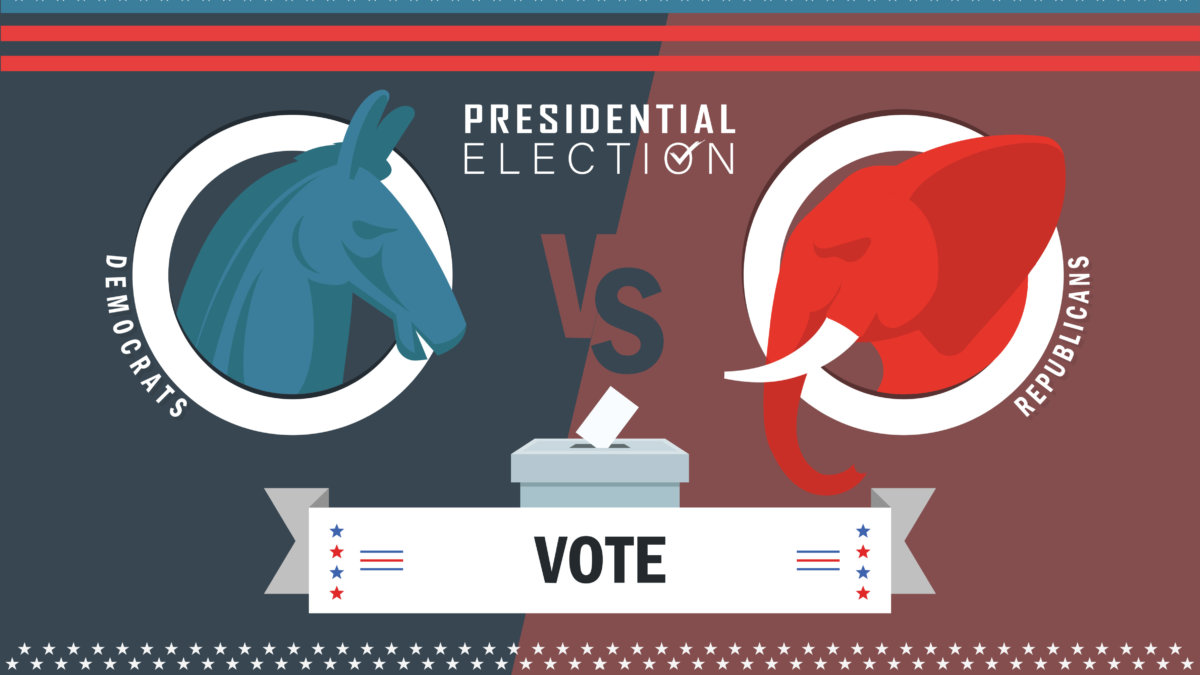
I’m not sure if you’ve heard, but we have a presidential election fast approaching. To tidily sum up all of the factors that have contributed to the fervency of this election cycle seems like an impossible task, but let’s just say it’s happening within a social climate that is, to put it mildly, contentious.
Here in America, we have the dubious honor of polarizing faster than any other democracy, with the vast majority of self-identifying Democrats and Republicans harboring intense feelings of antipathy toward members of the opposing party. And, while these trends may seem typical leading up to an election, it’s important to understand that these divisions aren’t run-of-the-mill political disagreements – they’re full-fledged cultural battles fought by increasingly passionate people enduring an unprecedented pandemic.
If polarization is the flame, social media is often the gasoline. Platforms like Facebook serve for many as primary sources of news and commentary, reinforcing users’ biases to create what are, at best, information bubbles, and at worst, entirely self-contained realities. That’s another conversation for another day, but it’s all to say that we live in a society (™) in which political allegiances are more than partisan; they’re impassioned, holistic identities that can be solidified through asymmetric media consumption. “Talking past each other” doesn’t even begin to explain it.
With that reassuring backdrop, this election season presents an unprecedented set of internal communications challenges for businesses. Combined with the overwhelming task of adjusting to a new way of life within a pandemic, it’s becoming extraordinarily difficult to compartmentalize work and the tumult of the outside world. That means businesses are confronted with new types of personnel issues that transcend the workplace – and that their handling of those issues have implications for the internal and external sentiment surrounding their brand.
To what extent is it the employer’s role to foster conversation about our current political dynamic, especially as tensions mount leading up to Election Day? Where is the line between providing an open forum for discussion and creating a potentially hostile work environment? And, how should companies address conflicts stemming from this hypersensitive climate? These questions are subjective and highly dependent on company culture, but it’s not a value judgment. Here are some things to consider as businesses navigate our current climate surrounding the election:
- Internal Corporate Communications: With so many eyes on Election Day, the last thing businesses should do is pretend it’s not happening. In fact, they should proactively make arrangements to ensure their employees can exercise their right to vote on November 3rd. Preferably, businesses should communicate a policy for setting aside (paid) time to hit the polls, as thousands have in committing to the Time to Vote movement.
That being said, there’s a difference between encouraging employees to vote and encouraging them to vote for a specific candidate. Companies need not shy away from identifying with certain ‘human values’ – as so many have this year in voicing their solidarity with the Black community – but blatantly partisan rhetoric should be avoided, even if you believe those values align with a political candidate.
- Social media: While publicly espousing a business’ ‘human values’ on social media has become the norm, posting about partisan politics is likely to isolate many of your clients, partners, and employees. But what about employee posts on social media – something that’s largely out of the control of the company itself?
It’s an evolving area of the law, but generally, private companies have the ability to take action based on the contents of their employees’ public posts. Does that mean that employers should be policing social media profiles, dishing out discipline for potentially divisive political posts? We certainly don’t think so, especially considering all of the recent factors that have understandably elicited peoples’ passionate beliefs. But a company should do its best to establish a policy for what is not acceptable on social media, particularly on a professional network like LinkedIn. A good rule of thumb is: if public posts brought to an employer’s attention are outwardly intolerant or malicious toward other groups of people, they may be subject to action. But it’s also important not to overstep employee-employer boundaries, and merely speaking in ‘political’ terms on one’s personal social media shouldn’t justify a conversation with HR.
- Internal disputes: Should your company maintain an open forum for employees to discuss all of the pressing political issues of our time? We don’t think so. As well-intentioned as the notion of ‘fostering conversation’ may be, creating a Slack/Teams channel or email group dedicated to politics is bound to create a hostile environment for many employees. There should be no effort to prevent employees from having discussions of their own if they so choose, but to create – and inevitably have to moderate – a political dialogue on a company platform is an example of a company overstepping that employee-employer boundary.
Should a conflict arise among employees based on politics, it should be treated no differently than any other interpersonal dispute within a company. Interactions among coworkers should be predicated on mutual respect, but if that can’t be maintained, then HR will likely step in in accordance with company policies.
Ultimately, all internal and external company communications require both discretion and empathy. That means a recognition that politics should largely be kept separate from the work environment, but also some perspective about how the totality of 2020 has heightened social tensions across the board.